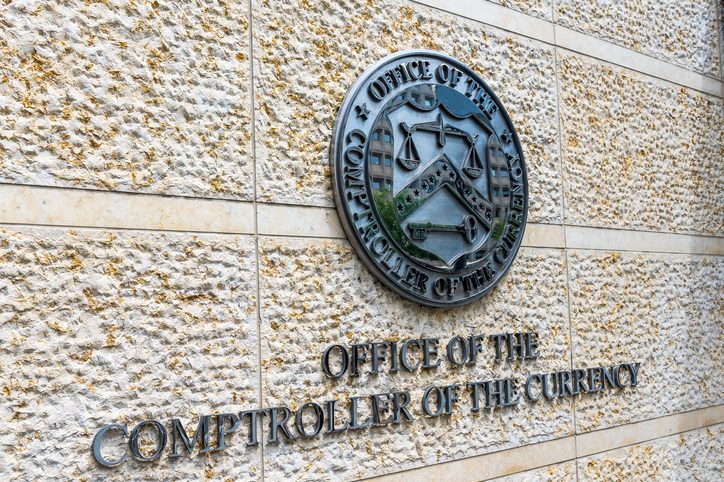Precise dates have been set for some of the incoming measures set out in the Economic Crime and Corporate Transparency Act 2023 (ECCTA), with further timetable updates to be issued in due course and following publication of secondary legislation.
The publication of the Registrar (Identity Verification and Authorised Corporate Service Providers) Regulations 2025 (New Regulations) has empowered the Registrar to make additional updates alongside the ECCTA in relation to identity verification (IDV) and the registration of Authorixed Corporate Service Providers (ACSPs).
For further information about the enactment of the Act and the initial reforms to the Companies House (Registrar), refer to our previous article Updates to UK Companies Registries, which also outlines the first changes rolled out in March 2024.
Over the next 18 months, and slated for completion in 2027, changes made by the ECCTA are set to be implemented, with transitional periods allowing companies time to adjust and comply.
Changes in 2025
Already in force from January 27, 2025, the Registrar is now able to review applications from individuals who are using their residential addresses as their registered office addresses and are seeking to suppress such information from the public.
From February 25, 2025, as part of the Registrar’s powers to query, scrutinize, and reject information on the register, companies deemed to have been formed for a false or illegal basis will be struck off expeditiously.
Firms that are registered for anti money laundering in the UK will be able to apply to become registered as ACSPs with the Registrar. Once authorized by the Registrar, ACSPs will be able to carry out verification services for directors and persons with significant control (PSCs). The New Regulations will allow the Registrar to suspend an ACSP by providing a notice of suspension where it has cause to believe that a person is not “fit and proper” to carry out the functions of an ACSP.
It has also been confirmed that, with effect from March 25, 2025, individuals will be able to voluntarily verify their identity with the Registrar. Under the New Regulations, should the Registrar have reasonable cause to believe that the information provided is misleading, false, or deceptive, they will be able to send re-verification notices to individuals who have verified their identities. The expectation is that IDV will become mandatory for directors and PSCs.
The Registrar has outlined some upcoming milestones. By autumn 2025, IDV will be compulsory for any new directors, prompting the 12-month transition for 7.4 million directors and PSCs to verify their identities.
IDV will become compulsory for presenters by spring 2026, requiring any third parties filing on behalf of a company to be an ACSP. Additionally, the Registrar will be able to reject any documents delivered by any disqualified directors, unless delivered by an ACSP for specified filings permitted by law.
By the end of 2026, it is proposed that the transition period for all individuals requiring IDV should be complete, and compliance activity against any individuals who have failed to comply will begin. Supplementing these changes, the Registrar is also aiming to facilitate improved cross-checking of confirmation and data between the Registrar and other public and private sector bodies.
Accounts reform
As mentioned in our previous article, the Registrar is working to make the accounts provided on the register more reliable and accurate, while reflecting the latest advancements in digital technology. The reform, projected to be enacted by the end of spring 2026, will ensure software-only filings for all accounts and introduce a limit on the number of times a company can shorten its accounting reference period.
Once implemented, directors of small companies claiming audit exemptions will have to provide an enhanced statement on the balance sheet specifying the exemption, including confirmation that the company is eligible for such exemption. Furthermore, small companies and micro-businesses will no longer be able to file abridged accounts and all companies will be required to file their profit and loss accounts.
Corporate directors
Alongside the ECCTA’s goal of preventing abuse of UK corporate structures and economic crime, the UK government, under the Small Business, Enterprise, and Employment Act 2015, initially due to come into effect in 2016, will be taking steps to restrict the use of corporate directors by the end of 2026.
It has been proposed that a corporate director may only be appointed where;
- it is a UK entity (overseas companies will be prohibited from acting as corporate directors in the UK);
- the directors of that company are all individuals, who have verified their identity; and
- there is at least one natural person appointed as a director.
Register of Overseas Entities
The Register of Overseas Entities (ROE) came into force on August 1, 2022, through the Economic Crime (Transparency and Enforcement) Act 2022 and is a register of beneficial owners of overseas entities that own land (freeholds and leaseholds granted for more than seven years) in the United Kingdom.
ROE is maintained by the Registrar, and any overseas entities wanting to buy, sell or transfer property or land in the United Kingdom had to register with the Registrar with information regarding the registrable beneficial owners or managing officers.
As part of the ECCTA, from September 2025, the Registrar will allow access to certain trust information on the ROE on request as an additional measure to improve transparency and assist in combatting economic crime.
Mark Geday, partner, has more than 20 years of experience employing a range of innovative and market-defining transactions, including complex private and public matters involving parties with differing needs and goals, for clients spanning all areas of the private equity and asset management sector. Associate Jasmine Jones advises international and local clients on a range of UK and international corporate and commercial matters, with a focus on mergers and acquisitions, private equity, venture capital, and general corporate matters. Morgan Lewis

















